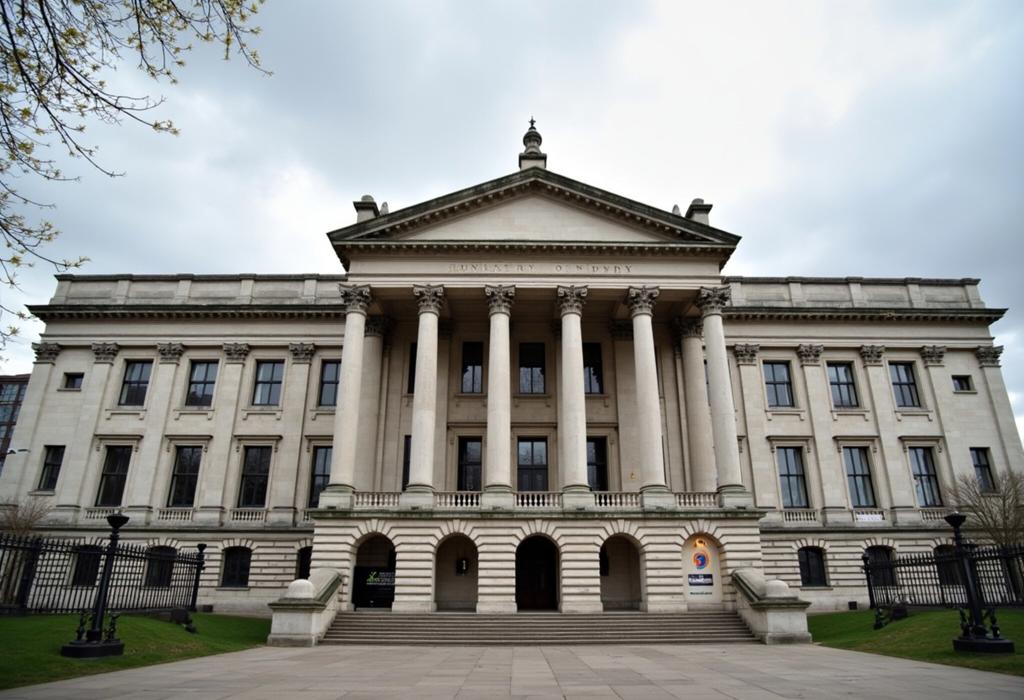UK Supreme Court Ruling Raises Concerns Over Trans Rights
On April 16, 2025, a ruling by the United Kingdom Supreme Court delivered a significant blow to the rights of transgender individuals. In the case of For Women Scotland v. The Scottish Ministers, the court decided that the term 'sex' in UK law strictly refers to a person's sex assigned at birth, which has dire implications for how transgender individuals are treated under current legislation.
Since 2005, the UK has recognized gender changes through the issuance of gender recognition certificates, allowing transgender individuals to amend their documents, including birth certificates and passports. However, the recent court ruling undermines this progress. Interpretations of the ruling have compelled transgender individuals to use facilities aligned with their assigned sex at birth, disregarding their authentic gender identity and posing serious threats to their safety and human rights.
Yasmine Ahmed, UK director at Human Rights Watch, criticized the ruling, labeling it as "severely regressive." She urged UK authorities to ensure that public services remain inclusive, accessible, and safe for everyone affected by the ruling.
The court's decision arose from the Scottish Government’s Gender Recognition Reform Bill, which sought to simplify the process required for legal gender recognition, eliminating the need for a medical diagnosis of 'gender dysphoria.' The Supreme Court asserted that only the biological sex assigned at birth should define a person's legal status, a stance that disregards individuals who hold a gender recognition certificate.
Despite asserting that discrimination against transgender individuals is prohibited under the Equalities Act 2010, the court did not outline how these protections would be effectively enforced. Consequently, transgender individuals now face barriers that restrict their access to single-sex spaces corresponding with their gender identity, even where official recognition has been granted.
Furthermore, the Equality and Human Rights Commission (EHRC) issued interim guidance in response to the ruling, which was criticized for lacking adequate consultation. This guidance reinforced the notion that trans people ought to be classified according to their sex assigned at birth.
The ruling takes place within a broader, often contentious discourse about trans rights in the UK, wherein transgender people are frequently depicted as threats to safety, and their experiences are often marginalized. The International Covenant on Civil and Political Rights (ICCPR) obligates the UK to uphold the rights to legal recognition and privacy for all individuals, including transgender individuals.
Historically, various human rights courts and committees have condemned the exclusion and mistreatment of transgender individuals, asserting that societal realities should be reflected in legal interpretations of gender identity. Furthermore, the momentum surrounding the recognition of gender based on self-declaration has increased globally, with twenty countries recognizing such rights through legislative means.
Notably, the Supreme Court of Nepal recently reaffirmed that individuals have the right to legal recognition of their gender without the requirement of medical verification. Additionally, the Colombian Constitutional Court rejected a previous ruling that treated gender as an objective measure, instead affirming the autonomy of individuals in defining their own identities.
The recent ruling has also raised alarms regarding the rights of intersex individuals, who may suffer further discrimination as a result of a legal framework that enforces binary definitions of gender and requires non-consensual procedures for those identified as intersex at birth.
In light of this recent Supreme Court judgment, the British Medical Association condemned the decision, emphasizing that a rigid binary approach to gender does not reflect the realities of human diversity and is detrimental to both transgender and intersex individuals.
Moving forward, Human Rights Watch’s Ahmed stressed the urgent need for Parliament to amend the Equalities Act, ensuring protections for trans people who possess gender recognition certificates. She lamented that the UK, once a frontrunner in advocating for LGBTQ+ rights, now faces significant challenges in maintaining its reputation due to this regressive judicial ruling.
In a related development, the Scottish Parliament has announced a series of changes concerning its facilities by enforcing a ban on trans women from female toilets and changing areas. They will also be introducing gender-neutral facilities to accommodate all visitors and staff.
The Scottish Parliamentary Corporate Body (SPCB) expressed that these alterations, while practical and minimal in cost, are essential in fulfilling their legal obligations and providing clarity for all users of the Parliament. The SPCB aims to offer a welcoming environment while navigating the complexities introduced by the Supreme Court's ruling.
Such rapid changes signal a pivotal moment for gender rights in the UK, as advocates continue to call for legal reform in the name of dignity, safety, and equality for all individuals.
Bias Analysis
Key Questions About This Article




